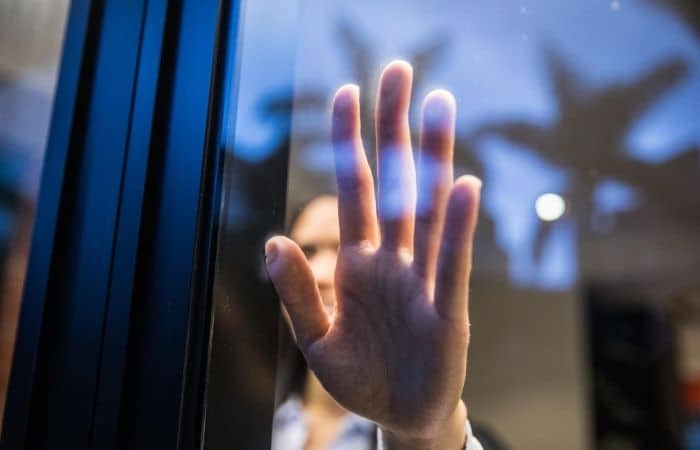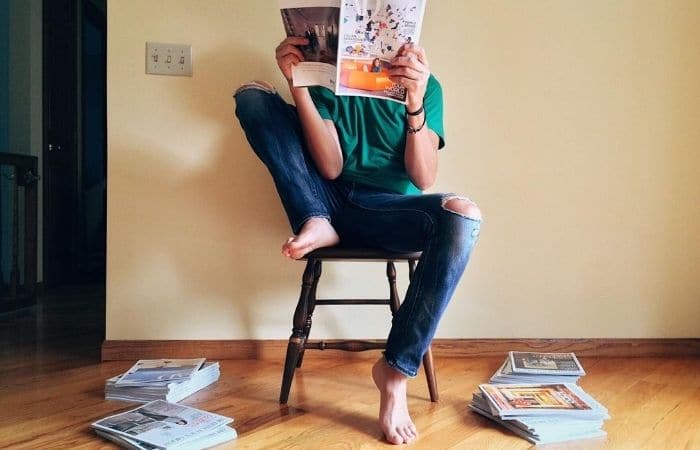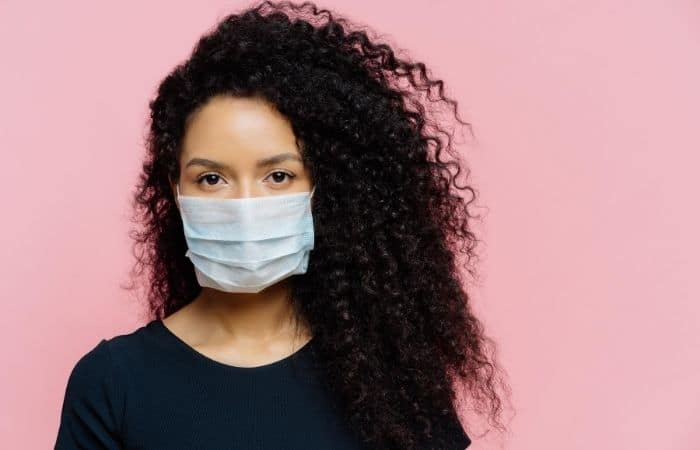There is a new payment for people on low-income who have to self-isolate (plus ideas for your money if you cannot get the payment).

£10 sign up bonus: Earn easy cash by watching videos, playing games, and entering surveys.
Get a £10 sign up bonus when you join today.
Join Swagbucks here >>
Having to stay at home if you’re told to isolate or have symptoms of coronavirus may be helping your community to stop the spread, but there’s a massive worry about what happens to all the bills you still need to pay.
Even if you’ve got to take time off work, that doesn’t mean you’ll get paid?
To help with money if you need to self-isolate, the government has introduced a new payment for people who live in the highest risk areas.
Self-isolation payment

The government has set up a new payment for people on low incomes who are in areas with high rates of COVID-19.
If you’re unable to work from home, you will be able to access a new payment scheme.
The scheme will first be rolled out in Blackburn with Darwen, Pendle, and Oldham from Tuesday 1 September.
If successful, the scheme will be quickly applied to other areas with high COVID-19.
UPDATE: there is a new Test and Trace Support Payment of £500 for people and the parents of children who are asked to self-isolate and on a low income.
How much can I get?

Anyone eligible who tests positive for COVID-19 will receive £130 for their 10-day period of self-isolation.
Other members of the household who need to self-isolate for 14 days will get £182.
A non-household contact who is asked to self-isolate by NHS Test and Trace will also be entitled to a payment of up to £182.
The self-isolation payment will not reduce any other benefits a person receives.
This new payment is being managed by local authorities for people who are not able to work from home and currently receive either Universal Credit or Working Tax Credit.
Payments will be made within 48 hours of the someone providing the necessary evidence, such as a notification from NHS Test and Trace and a bank statement.
Fraud checks are also being put in place.
- £130 if an individual has tested positive for coronavirus and has to self-isolate for 10 days (from the point they first developed symptoms)
- £182 if a member of an individual’s household has tested positive for coronavirus and they are asked to self-isolate for 14 days (from the point the member of their household first developed symptoms)
- £13 per day (up to a maximum of £182) if an individual is identified as a non-household contact of another person who has tested positive for coronavirus and is asked to self-isolate up until 14 days after they were most recently in contact with the person who tested positive
To be eligible for the funding, individuals must:
- have tested positive for COVID-19 or received a notification from NHS Test and Trace asking them to self-isolate
- have agreed to comply with the notification from NHS Test and Trace and provided contact details to the local authority
be employed or self-employed:- employed people will be asked to show proof of employment
- self-employed will be required to show evidence of trading income and that their business delivers services which the local authority reasonably judges they are unable to carry out without social contact
- be unable to work from home (checks will be undertaken on all applicants) and will lose income a result
- be currently receiving Universal Credit or Working Tax Credit
Not on a low income?

But what about people who aren’t on a government classed “low income”?
It’s cr*p, to be honest.
We’re being asked to help others and take on a huge financial burden ourselves.
Missing half a month’s pay while having to self-isolate would mean me not being able to pay my bills.
And I’m sure I’m not the only one.
After a good few months of not earning very much, even suggesting turning to savings is starting to sound annoying in my own head.
However, it’s not all doom and gloom.
If you’re having to isolate, don’t have an employer who will pay you more than SSP (£95.85 per week!), there are a few things you can do to spread your money and thinly as possible, so you can survive.
1 – Plan for it
Start getting a few extra tins of cheap baked beans, pasta, rice, tinned veg for your store cupboard, and any yellow sticker finds you can pop in your freezer.
This will give you a bit of a stash of food if you’ve got a lot less money coming in, so you don’t have to spend so much at the supermarket.
Please, plan ahead for some basic meals, stretching your ingredients as far as they can go.
While it may not be things you’re used to eating, there are some budget meals plans out there that can feed a family on around £25 a week.
2 – Defer payments
Do not just cancel your direct debits and bury your head in the sand – trust me (£40k worth of debt later!) that doesn’t work!
While it will mean you owe some companies money, contact your water bills, gas, electric, council tax, rent/mortgage, any debts and ask if payments can be lowered/put on hold for any month you’ll have less income.
You’ll need to adjust your budget in coming months to make up what you’ve not paid.
3 – Only pay the essentials
It may be nice to have Spotify or a subscription to tasty snack pots, especially if you need to do a 14 stint behind closed doors, but that tenner a month can be better used on bills or food.
Go through your standing orders and direct debits and cancel anything and everything that isn’t essential.
At the end of the day, it’s better to try and make it through a month living on basics than getting into debt.
4 – Bank of mum/dad
Everyone is feeling the pinch, but the bank of mum and dad/aunt/uncle/grandparents etc may be able to help out.
Asking to borrow money from family is never a nice thing to do, but if you’re at a push, it may well see you through.
5 – Talk to your employer
Perhaps you’ve got a decent sickness policy at work, or maybe some annual leave you can use.
Although annual leave is best spent doing something special with family, if you’re having to isolate you’ll all be together anyway.
Using annual leave may not be the best use of it, but it will keep pay coming in.
Some employers offer to buy and sell holiday. There are usually limits on when you can ask to do this, but never hurts to ask if you could buy more (it will mean your monthly pay goes down slightly).
Also, some employers can offer a short term advance (better than using an expensive overdraft!). Again, you will need to pay the money back, but it’s an advance on what you’ll earn anyway.
6 – Are you owed?
Now is the time to call back any favours owed to you.
I’m not saying for the cup of sugar your next-door neighbour asked for, but you could have money just sitting there.
- Doormat bank account – check if you’ve got money hanging around in a forgotten old bank account
- HMRC refund – you could be due a refund if you’ve overpaid tax and it’s simple to check
- HMRC tax relief – do you wear a uniform at work, buy tools? You can get tax rebate back
- Loyalty card points – have a Nectar card, Tesco Clubcard, Boots Advantage Card? Dust them off, log into your online account to see how much your points are worth. You can use them in-store to buy food and toiletries.
- Overpaid your energy bill? You could be due a refund on that.
Whatever is happening with you, please do keep your chin up.
- Where kids eat free this summer 2024 - 9 July 2024
- The Sun £9.50 Holiday – guide to a cheap UK break - 9 July 2024
- How to get FREE food and drinks – apps and other ideas - 9 July 2024

Mary says
Good idea is about get kashback! Very useful.